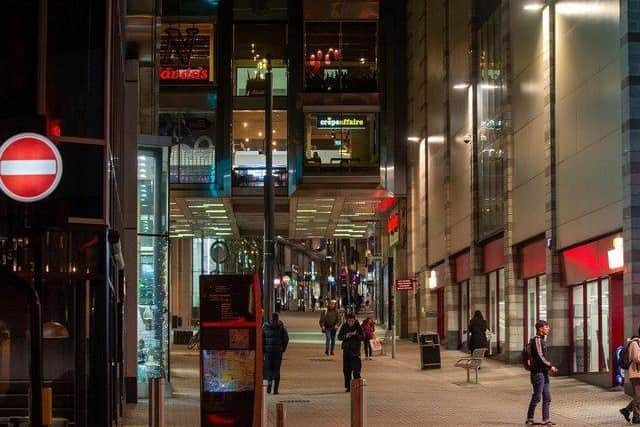Night Time Industries Association calls for Home Office inquiry into drink spiking
and live on Freeview channel 276
Following reports of incidents across the country, Home Secretary Priti Patel has asked police forces to assess the scale of the problem.
Groups from more than 30 universities around the UK have joined an online campaign calling for the boycott of nightclubs, with campaigners seeking “tangible” changes to make them safer, such as covers/stoppers for drinks, better training for staff and more rigorous searches of clubbers.
Advertisement
Hide AdAdvertisement
Hide AdA petition launched last week to make it a legal requirement for nightclubs to thoroughly search guests on entry has already gained more than 120,000 signatures.


West Yorkshire Police has confirmed that it is investigating one case of spiking by injection in Leeds.
Michael Kill, CEO of the Night Time Industries Association, commented: “The NTIA are very concerned to learn about the reported increase in the number of spiking incidents taking place across the country.
"We support all those coming forward to speak about their experiences. It goes without saying that everyone should be able to enjoy a night out without fearing for their own safety, and we are saddened to hear that some don’t feel this way.
Advertisement
Hide AdAdvertisement
Hide AdMr Kill added: “There is a lot that we as a sector are already doing to try to tackle drink spiking. In response to recent reports, operators across the country have been working with the police, local authorities and key stakeholders, focusing on safeguarding customers, particularly women, at night.
"It varies by region, but many cities already have well-established networks amongst operators and community support representatives, and work very closely with authorities, communicating on a regular basis to highlight increases in crime or disorder.
“The truth is though, very real challenges still exist. We know this a societal problem, but it is very difficult to say with any real certainty what the scale of this problem is, because drink spiking is currently criminalised under an offence which encompasses many other types of incident, and it is also not possible to ascertain whether incident occurred within a licensed venue or some other setting.
Mr Kill added: "The result is that police data revealed through FOI requests does not give an accurate picture of what’s happening, or lend itself to specifically categorising this particular crime.
Advertisement
Hide AdAdvertisement
Hide Ad“We have been encouraged to see the progressive approach taken by Devon and Cornwall Police through their drink spiking testing pilot. The Home Office should launch a formal inquiry to examine the results of that pilot, and the lessons that can be applied to the industry and policing nationally.
"The scheme found that through having on-site testing available in the night time economy, data could be collected that would provide a more accurate picture. Having testing available and clearly communicating this to customers was also found to have de-escalated situations - where tested drinks came back negative - and generally provided reassurance to customers who had spiking concerns.
"We believe the widespread implementation of these measures – to complement existing routine duty of care measures – is an important step in making sure everyone can enjoy a night out safely and without fear, as it should be. The Home Office should work with the industry as part of this inquiry, and also speak to campaign groups and listen to their concerns.“
Universities say the increasing number of spiking by injection during nights out is “incredibly disturbing” and they are working with police to ensure student safety.
Advertisement
Hide AdAdvertisement
Hide AdSeveral women, including students, fear they have been targeted by people injecting them with drugs at nightlife venues, with reports in a number of parts of the UK, including Nottingham, Scotland and Northern Ireland.
Multiple institutions have condemned the “appalling behaviour” and have expressed solidarity with the victims.
A spokesperson for Universities UK, an advocacy organisation representing higher education establishments across the country, said: “The safety of students is of the utmost importance and universities are working together with local police forces, clubs and bars, and student unions to ensure they are fully aware of all risks to student safety.
“Universities will not tolerate any form of sexual assault or harassment and are dedicated to ensuring that students have the safe and enjoyable university experience they deserve.”
Advertisement
Hide AdAdvertisement
Hide AdThe Night Time Industries Association (NTIA) is the leading trade body representing the businesses in the night time economy in the UK. It has more 1200 members, including night clubs, bars, casinos, festivals, and supply chain businesses.
